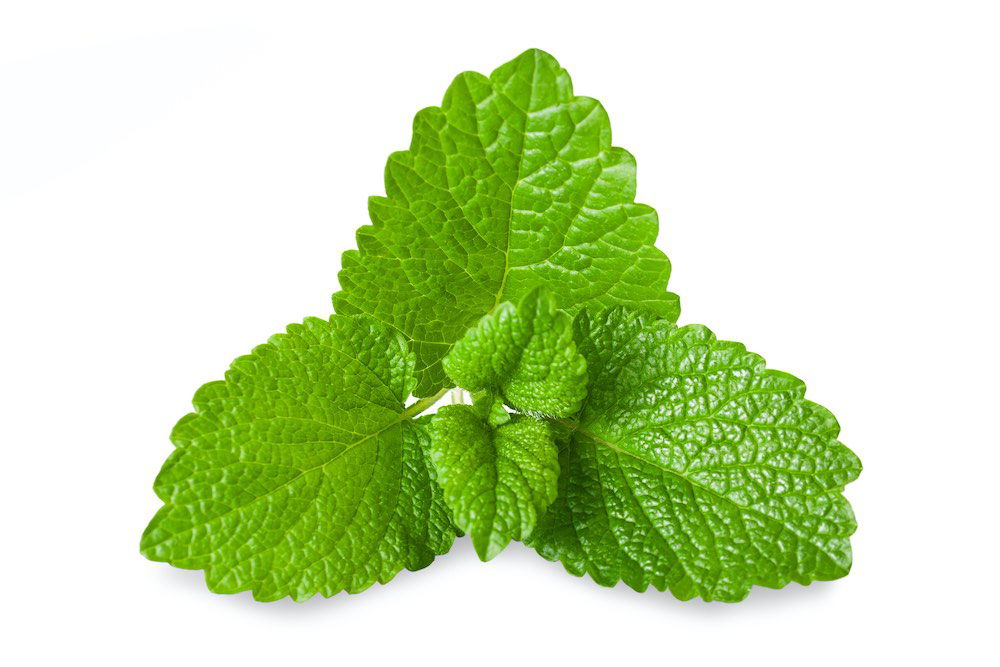Lemon Balm

Lemon balm (Melissa officinalis) has a soothing effect on nervous symptoms in horses and dogs. The lemon-scented medicinal herb has soothing effects on the nerves as well as on gastrointestinal ailments.
Where does lemon balm come from, and what does it look like?
Lemon balm is native to the warm regions of Southern and Southeast Europe. Today it is found all over Europe as a popular tea plant and culinary herb.
Melissa belongs to the Lamiaceae family, along with other medicinal herbs like sage and rosemary. The genus Melissa has only four species which are distinguishable from one another through their different scents. Melissa officinalis, or lemon balm, is easy to identify through its typical lemon scent. Rubbing the leaves between one's fingers releases a lemony fragrance; this is due to the oil glands that contain essential oils.
The balm plant is a perennial and grown up to 90 cm high. It has no special requirements with regard to location. Its leaves are oval, succulent green, and slightly hairy, resembling those of the stinging nettle.
It flowers from early June until late August. The delicate flowers are often white but may be violet, pink or blue. These contain nectar and attract bees, which is why this plant is also called "bee balm" – in fact, the name Melissa is derived from the Greek word melitta, or honeybee.
After fertilisation, the flowers form small egg-shaped nuts that contain seeds. Balm plants can also propagate through their roots, which form a branched underground network, or rhizome.
What is lemon balm used for?
Lemon balm has a variety of uses in the kitchen. Its fresh lemony taste complements both sweet and savoury dishes. It is also frequently added to beverages.
Lemon balm has been used as a mood lifter since the antiquity. Hildegard von Bingen also praised lemon balm's healing powers. Convents and monasteries passed down knowledge of medicinal herbs over the centuries: the famous "Klosterfrau Melissengeist" was developed by a German Carmelite nun in 1826, adapted from a French recipe.
Lemon balm leaves are used in phytotherapy. They are collected before the flowering period, when the plants have the highest concentrations of substances, and dried slowly. The production of pure essential oil from lemon balm is quite labour-intensive, which makes the oil expensive. Alternately, lemon balm can also be soaked in oil to produce an infused oil.
Today, lemon balm preparations are recommended to treat insomnia, nervousness, and the effects of chronic stress. Lemon balm tea relaxes the musculature of the gut and can relieve digestive ailments. The essential oils in lemon balm are a main ingredient in salves to treat fever blisters from Herpes simplex.
Which substances account for lemon balm's effects?
Balm leaves and flowers contain essential oils, including citral. This yellow liquid substance has a characteristic lemon scent that repels insects. Citral impedes the growth of bacteria and fungi and has antibiotic effects against the pathogen Staphylococcus aureus.
Lemon balm's essential oil is soothing, relaxing, and calms anxieties. It presumably works on certain neurotransmitters that are more active during periods of chronic stress. Lemon balm's effect on the autonomic nerve system soothes and relaxes the stomach and gut in digestion problems caused by nerves. Its aromatic plant substances promote the production of saliva, gastric juices and bile, and stimulates the appetite.
The caffeic acid and rosmarinic acid – a tannin found in other Lamiaceae plants such as rosemary, sage, thyme, and comfrey – have antioxidant, anti-inflammatory and antimicrobial properties. The antiviral effects of lemon balm are attributed to its tannins.
What can lemon balm be used to treat in horses and dogs?
External application of lemon balm tea soothes insect bites and stings. Tip: Dip a soft cloth in lemon balm tea and apply to the sting.
Taken internally, lemon balm soothes in cases of
- anxiety
- nervousness
- insomnia
- stress-induced digestive ailments
Lemon balm also has positive effects on systemic diseases like Lyme disease, which affects the nervous system. Lemon balm's antibacterial effects support the immune system.
Lemon balm also helps aid digestion in cases of
- gastrointestinal ailments
- cramps
- bloating
- loss of appetite
Adverse effects:
The essential oil in lemon balm should not be used in undiluted form as it can irritate skin and mucous membranes. Do not use lemon balm if your horse has a Lamiaceae-related allergy.
Sources
- DAZ.online. (03. 04 2018). Von Melisse: https://www.deutsche-apotheker-zeitung.de/news/artikel/2018/01/01/melisse-mehr-als-nur-einschlafhilfe abgerufen
- Purle, T. (25. 06 2020). Das Kräuterbuch. Von Zitronenmelisse: https://www.kraeuter-buch.de/kraeuter/Zitronenmelisse.html abgerufen
- Reichling, J., Gachnian-Mirtscheva, R., Frater-Schröder, M., Di Carlo, A., & Widmaier, W. (2008). Heilpflanzenkunde für die Veterinärpraxis. Berlin-Heidelberg: Springer Medizin Verlag.













